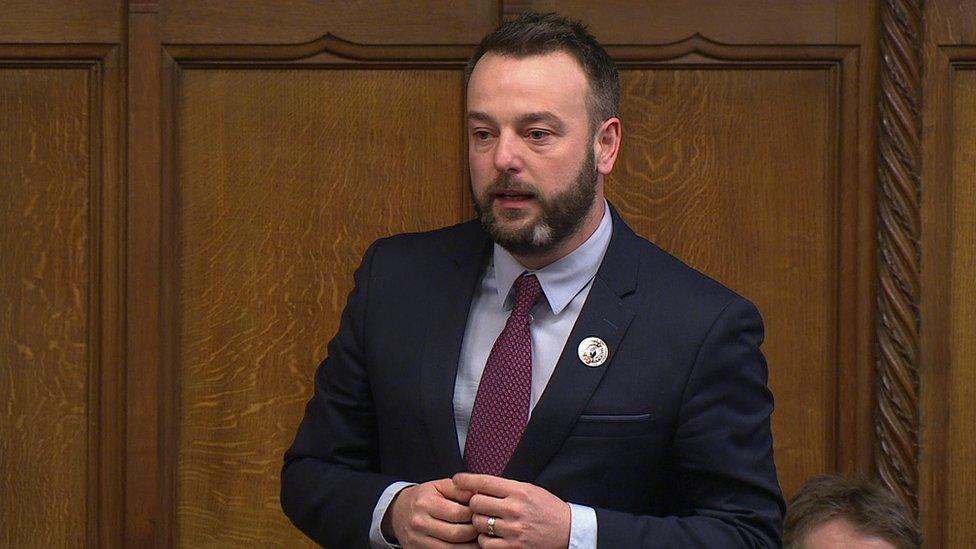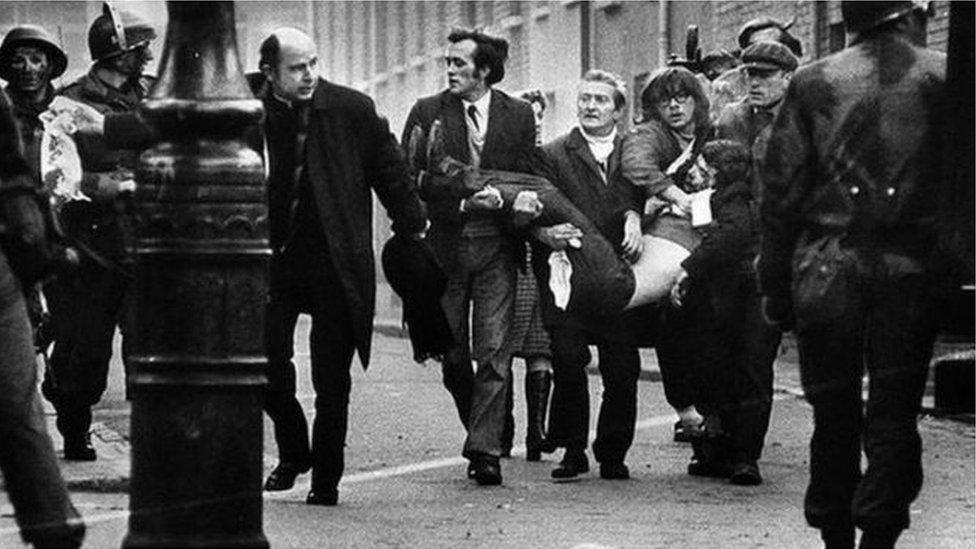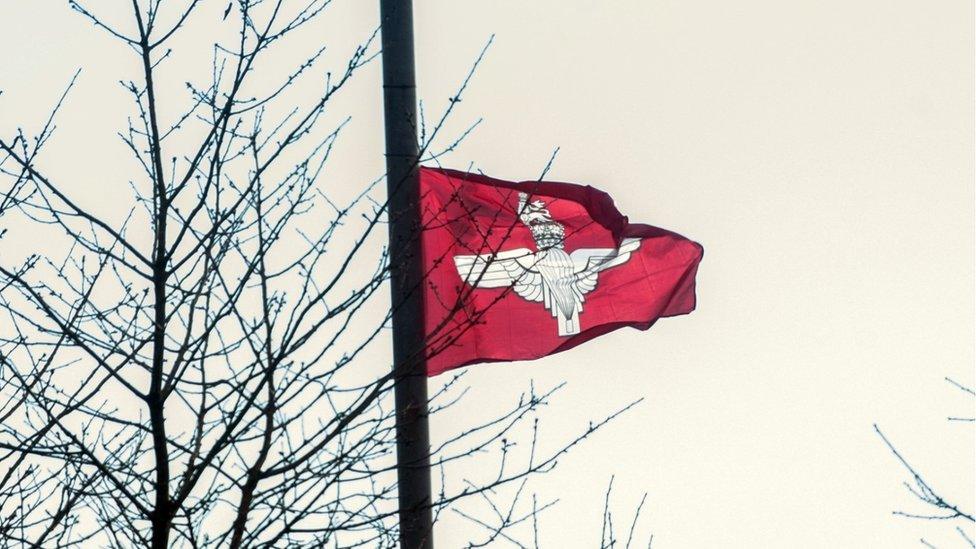Bloody Sunday: SDLP say Army 'should apologise' for soldiers' actions
- Published

Colum Eastwood said it was "far beyond time" that the Army acknowledged the pain caused by soldiers on Bloody Sunday
The Army should "apologise for the actions of their soldiers on Bloody Sunday," the leader of the Social Democratic and Labour Party has said.
Colum Eastwood made the call ahead of the 50th anniversary of Bloody Sunday which will be marked this weekend.
Thirteen people were shot dead after soldiers opened fire on civil rights demonstrators in Londonderry in 1972.
Prime Minister Boris Johnson told the House of Commons that it was "one of the darkest days of the Troubles".
The legacy of Bloody Sunday was raised by MPs during both Northern Ireland Questions and Prime Minister's Questions on Wednesday.
Mr Eastwood told the House that the victims were "unarmed and marching for civil rights" when they were killed by members of the Parachute Regiment on 30 January 1972.
The Foyle MP asked Secretary of State Brandon Lewis if he thought the regiment should apologise.
In 2010, the then Prime Minister David Cameron, made a public apology to Bloody Sunday victims following the publication of the findings of the Saville Inquiry.

Thirteen people were killed and 15 wounded on Bloody Sunday
In a separate statement issued by the SDLP, Mr Eastwood repeated his call for a military apology over Bloody Sunday.
"Last week Parachute Regiment flags were erected on the outskirts of our city in a deliberate attempt to cause hurt and pain to the families of those who were murdered," he said.
"The British Army rightly condemned the flying of those flags as a grossly offensive act against the victims of Bloody Sunday.
"They have yet to apologise and condemn the actions of their soldiers in Derry on Bloody Sunday in 1972," Mr Eastwood added.
"It is far beyond time they acknowledge what those soldiers did, the immense pain they have caused to families and the indelible mark it has left on our city."

Parachute Regiment flags have been erected in Drumahoe and Newbuildings, on the outskirts of Derry
In answer to the SDLP leader's question in the Commons, Mr Lewis said: "It is important that we do not repeat the mistakes of the past but remember these difficult moments in our history and come together to help build a better shared future for all of the people of Northern Ireland."
Addressing MPs at the start of Prime Minister's Questions, Mr Johnson said he supported the Northern Ireland's secretary of state's remarks.
"This Sunday marks a tragic day in our history," the prime minister said.
"This was one of the darkest days of the Troubles... that's the 50th anniversary of Bloody Sunday and I echo his [Mr Lewis] call to learn from the past, to reconcile and build a shared, peaceful and prosperous future."
Legacy plan
Separately, Mr Johnson's government has said it "remains committed" to its Troubles legacy plan, but has given no indication of when legislation may be brought forward.
All Northern Ireland's political parties and victims' organisations oppose a proposed amnesty for all Troubles-era offences, a plan which was first announced last July.
A target date of last autumn was missed without explanation.
During Wednesday's questions, Mr Lewis told the House of Commons the government was "reflecting carefully" on feedback from parties and victims' groups.
- Published24 January 2022
